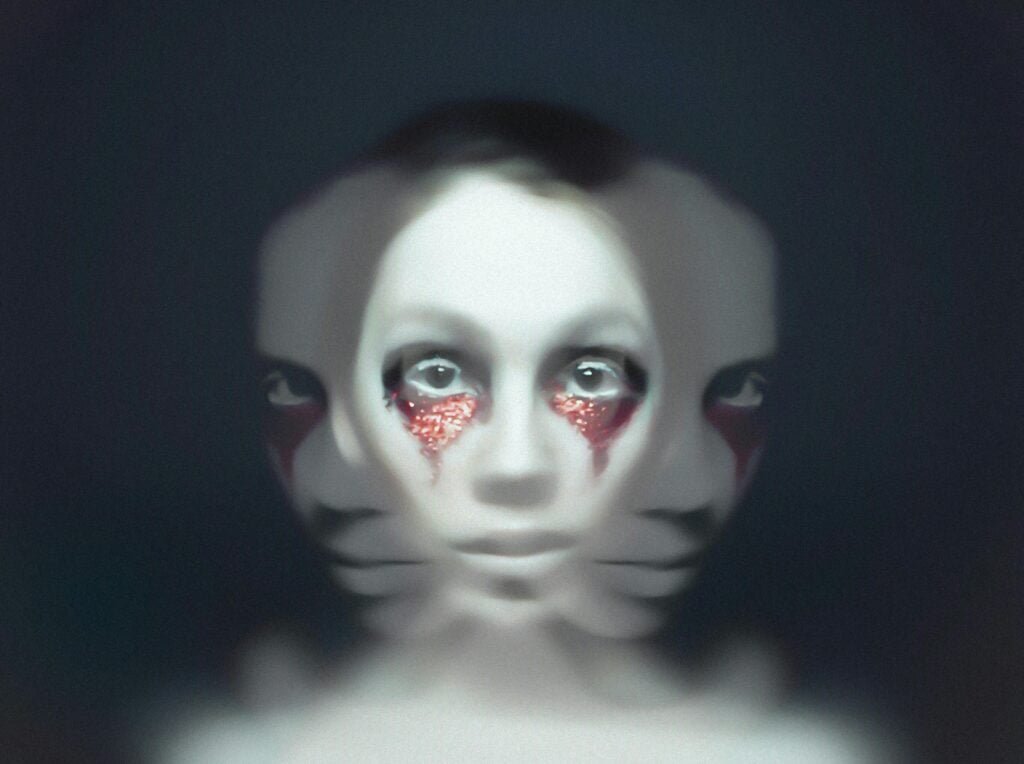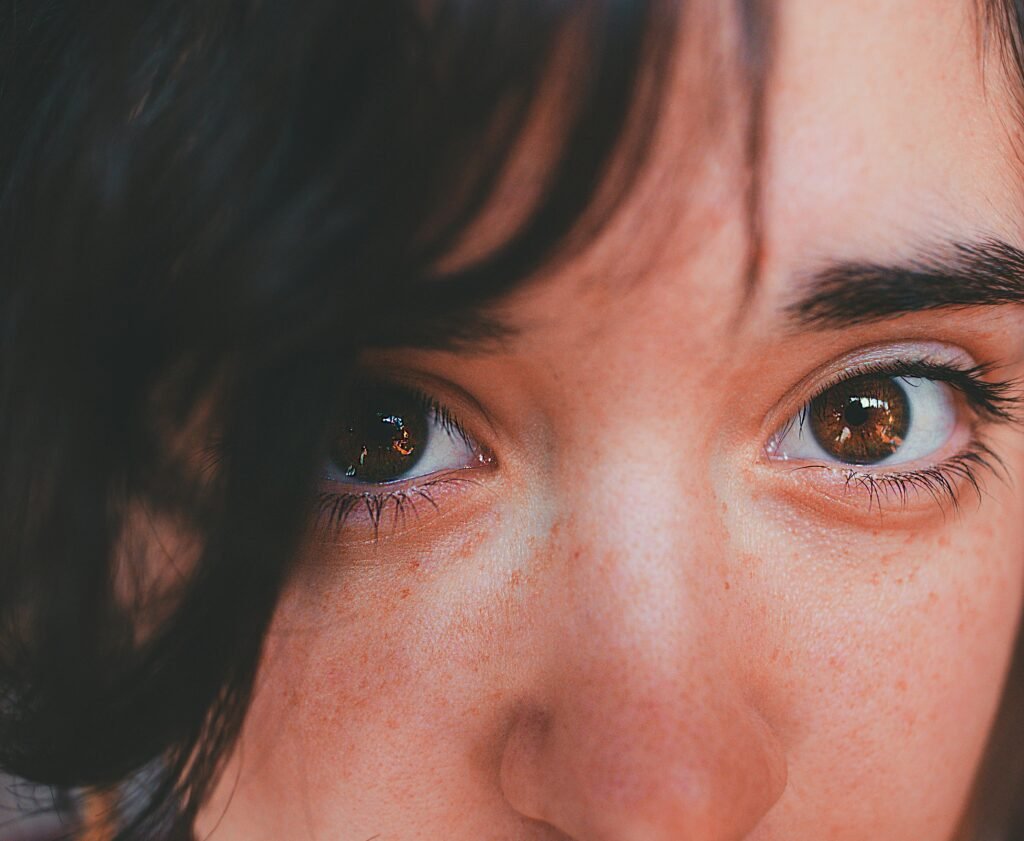Our eyes play the most important role in building our perception of the world. Our eyes help us to see the details of our loved one’s features. Or to look at the sunset and see the glory of vibrant colors. Our eyes keep us safe and make everyday a special one. But do we pay enough attention to maintaining these vital organs? We are more likely to ignore signs of unhealthy eyes.
We brush them off as a minor inconvenience. But, if we ignore the warning signs of unhealthy eyes, we may end up risking our vision. And when our vision is compromised, it also puts our overall wellbeing at risk.
Knowledge about the signs of unhealthy eyes helps you safeguard one of your most precious senses. Understanding the signs of unhealthy eyes is not only about relief from discomfort. It is also an effective way of protecting from future complications. When you are aware of the warning signs, you can get timely professional care. So, your eye care becomes proactive.
The traditional wisdom says that our eye health deteriorates as we age. But today, even children and young adults are vulnerable to declining eye health. Our screen-heavy worlds put us all at equal risk of eye health issues.
It is easy to get overwhelmed by the busyness and ignore the signs of unhealthy eyes. But remember that when your eye health declines, it directly affects your quality of life itself, so in order to ensure that you continue to enjoy the bright and beautiful sights around you, address the signs of unhealthy eyes without delay.
Table of Contents
9 Signs of Unhealthy Eyes
Here are 15 major signs of unhealthy eyes that you should address with the right home remedies and medications –

1. Redness and Irritation
We all have had this frustrating experience. We look into the mirror and see that our eyes are glowing red! Our eyes can become red or bloodshot for a variety of reasons. Sometimes, you are tired, haven’t had enough sleep, or have been working on your screens for too long. Along with being bloodshot, your eyes might also feel itchy and scratchy.
The temptation to rub will be strong. But, if you give in, it will worsen the discomfort. Usually, this redness and irritation will pass in a day or two with a little rest. But if you see this redness and irritation last for more than three to four days, it’s time to take it seriously.
The redness and irritation in the eyes cna be caused by – Dryness in the eyes, allergies, infections, eye strain due to excessive screen use, or sleeplessness.
What to do: The first thing you can do is to give your eyes a break from strenuous activities like working on a laptop or watching movies. Get some sleep and let your eyes rest. You can use artificial tears to soothe the irritation. If the problem persists after two to three days, seek a medical opinion.
2. Blurry Vision
Blurry vision can be scary. You are trying to read your favorite book, and the letters look like they are dissolving. Or you are looking at your loved one, and their features appear fizzy. If this is a common experience for you, then you have one of the signs of unhealthy eyes. Blurry vision will frustrate you as it makes everyday tasks difficult. It can also be scary and put you at risk if you are driving, etc.
Blurry vision can be progressive or you will feel its full force suddenly. If you experience blurry vision, it might be a sign that you need to get your eyes checked for conditions such as nearsightedness. Your current glasses or prescription might be outdated and causing vision issues. But, there is always a chance that blurriness is a result of an undetected and serious eye health issue. So, do not ignore such signs of unhealthy eyes.
Your blurry vision might be a result of the onset of nearsightedness or farsightedness. You might have eye conditions such as astigmatism, cataracts, or glaucoma. Diabetes can also cause blurry eyes.
What to do: If you experience blurry eyes, schedule an eye exam with your doctor immediately. Don’t strain your eyes by ignoring this issue and trying to manage daily activities.
3. Eye Pain
Your eyes are not supposed to hurt. The pain could be a dull ache or a sharp, stabbing-like sensation. You might feel th pain throughout the day. Or your eyes might feel painful while doing a specific activity. Any feeling of pain in your eye or around the eye is one of the clear signs of unhealthy eyes.
Sometimes, even stress or too much screentime can cause painful eyes. Usually, these symptoms recede with a little break and rest. But, it would help if you did not ignore persistent eye pain. Sometimes, eye pain might indicate a serious issue that needs immediate medical intervention.
Your eye pain could be caused by simple eye strain due to overwork or lack of sleep. But they might also be a symptom of sinus infections, migraine headaches, scratches on the cornea, or glaucoma.
What to do: If you experience one of the signs of unhealthy eyes, like pain in and around the eye, you can try home remedies first. Resting your eyes is a good idea. You can also soothe your eyes with a warm compress and a cool compress. If the pan does not go away, see your eye doctor immediately.

4. Sensitivity to Light
We all feel blinded by sudden bursts of light; it is normal. Like when you step into the afternoon sun or switch on a bright light in a dark room. But are you squinting your eyes or closing your eyes in the ordinary indoor light? If yes, then you might have light sensitivity, also known as photophobia.
Light sensitivity is one of the signs of unhealthy eyes because it can be a symptom of a serious eye condition. It will hinder your movements around the house. If your eyes have light sensitivity, you will not be able to work on your laptop or watch a movie on the television.
Photophobia or light sensitivity could be the result of migraines, scratches on the cornea, and eye infections or inflammation. Certain medications could also have the side effect of light sensitivity.
What to do: For immediate relief from signs of unhealthy eyes like light sensitivity you can use lamps with soft lights in your home. You can also wear sunglasses inside the home. But remember to consult your eye doctor for complete diagnosis and treatment.
5. Frequent Headaches
Frequent headaches are one of tne of the major signs of unhealthy eyes. Are you getting headaches after reading for a long stretch or working on your laptop? Then your eyes are more likely the cause. These types of headaches begin at your temple or forehead or around your eyes.
Headaches that are signs of unhealthy eyes could indicate underlying strain. You could also get these headaches if your vision has changed and you have conditions such as nearsightedness. As with all other signs of unhealthy eyes, your headaches could be due to a more serious and undetected eye condition.
Eye health-related headaches might be the result of glaucoma or optic nerve issues. You might get these due to eye strain caused by excessive screen use or working in low-light conditions. If your vision condition, like nearsightedness, is uncorrected or if your prescription glasses or contacts are uncorrected, it might cause headaches.
What to do: The first thing you can try for immediate relief from signs of unhealthy eyes like headaches is resting them. Take a break from screens and stressful activities. Some over-the-counter pain relievers might also provide relief. If you are using contacts or glasses for vision correction, make sure that your prescription is up to date. But don’t forget to see your eye doctor if you are experiencing these headaches frequently or if they are very severe.
6. Floaters and Flashes
Floaters and flashes are harmless if they are infrequent and not lasting. But if there is a sudden onset of these signs of unhealthy eyes, then you need to take them seriously. Floaters look like tiny specks or squiggly lines that are floating in your vision. Most of us see them from time to time. Flashes can feel like a camera flash or a lightning streak.
If you have signs of unhealthy eyes like floaters or flashes, they might be a result of a normal aging process. Your floaters and flashes might also be caused by serious eye conditions like retinal detachment, which is a medical emergency.
What to do: If your floaters and flashes are a minor inconvenience, you can try moving your eyes up and down. This should move the floaters out of your line of sight. But, are you suddenly experiencing a lot of flashes and floaters? You should see the doctor and seek medical help right away.

7. Dry or Watery Eyes
Our eyes need the right level of moisture inside to be healthy. An imbalance of the moistness can result in dry eyes or water eyes. Both are signs of unhealthy eyes.
If you have dry eyes, you might feel many types of discomfort. Sometimes, it will present as a burning sensation or feel like a gritty sensation, like there i something in the eye. Dry eyes are often accompanied by itchiness and redness. Your eyes are also more sensitive to light if they are dry. On the other side, watery eyes can also cause equally discomforting. Teary eyes result in blurred vision, which affects your ability to see clearly. This tearing up without any trigger often disrupts your daily activities.
Signs of unhealthy eyes, such as excessive dryness or wetness, can be because of allergies or environmental factors like wind or dry air. Blocked tear ducts could also cause it. Certain medications can also cause dry eyes and watery eyes as a side effect.
What to do: If you have dry eyes, using artificial tears can give you some relief. If your doctor diagnoses allergies that are causing watery eyes, you can use allergy medication. If your problem is not solved, then you should get a thorough examination from your eye doctor to understand the root cause.
8. Difficulty Seeing at Night
Night blindness sounds scary. Often, we assume that night blindness means your vision will be lost overnight. But it’s not true. Night blindness is a progressive condition.
Initially it manifests as difficulty to adjust your vision to low light conditions. Many times, we dont even notice it. A clear indicator is if you are avoiding nighttime activities. The underlying reason might be the increasing difficulty for you to see in darkness. Night blindness can be dangerous, especially if you are driving at night.
Signs of unhealthy eyes, like night blindness, could be a result of nutritional deficiencies, specifically Vitamin A deficiency. If you have nearsightedness or cataracts, you might develop night blindness. Your night blindness could also be a result of conditions such as Retinitis pigmentosa
What to do: To prevent night blindness, you have to eat a diet rich in Vitamin A. You should get your eyes checked regularly to catch night blindness early and start treatment. If you are already experiencing night blindness, avoid activities that put you at risk, such as driving after talk.
9. Yellowing of Eyes
If the white part of your eye (known as the sclera) is acquiring a yellowish tint, you have one of the signs of unhealthy eyes. Such a change in color might not be connected to the health of your eye. It is more likely a condition like jaundice, where there is an excess of bilirubin in your blood.
When your red blood cells break down, a yellow pigment named bilirubin is produced. Your liver is responsible for processing bilirubin. When the liver fails to process bilirubin efficiently, it begins to accumulate in your body. This pigment turns your skin and eyes yellow.
Jaundice is a complex condition that might have been the result of many underlying health conditions. Liver diseases such as hepatitis, cirrhosis, or liver cancer can disrupt bilirubin processing. Bilirubin excretion can be affected by blockage of bile ducts due to gallstones or inflammation of the gallbladder. Some blood disorders, like hemolytic anemia, can lead to higher bilirubin levels by increasing the breakdown of red blood cells.
What to do: If you have noticed yellowing in your eye, it is crucial to seek medical attention immediately. If your healthcare professional diagnoses jaundice as the underlying cause of signs of your unhealthy eyes, they will recommend the treatment. Early intervention ensures complete and complication-free jaundice management.
Managing the Signs of Unhealthy Eyes

In the back of our minds, we all know and treasure our eyes. But, we often take them for granted and ignore the signs of unhealthy eyes. We have all done it at one time or the other!
We see the redness of the eye and blurry vision. We might take a small break, but we are not going to cancel that Zoom call. We are not going to cancel lunch with friends because of a headache. We are sometimes too busy to get eye tests and get updated prescriptions.
If we are lucky, these discomforts will resolve on their own, But it will be neglect on our part not to address such signs of unhealthy eyes even when they are frequent. These could indicate many serious underlying issues – not just for your eye health but also your overall health.
Signs of unhealthy eyes will not only disrupt your vision but also affect your quality of life. You will not be able to do the work you love, enjoy that movie date, or play sports with your buddies. That is a great loss.
If you are aware of these signs of unhealthy eyes and take prompt action, you can protect your eyes. Getting professional help on time will protect you against future complications and ensure your wellbeing.
You can indeed expect that your eye health will deteriorate as you get older. But routine eye checkups and addressing signs of unhealthy eyes in time can help you minimize the effects of aging on your eye health.
So, take action as soon as you notice the signs of unhealthy eyes and protect your precious eyes.




